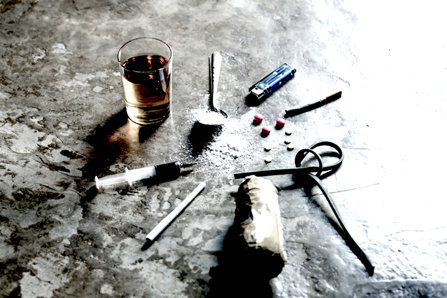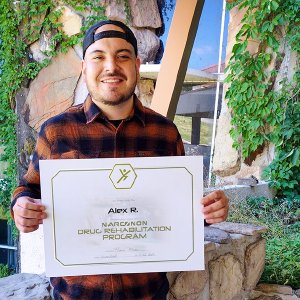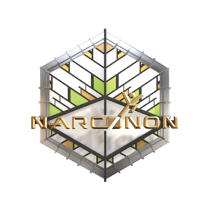Am I an Addict?

Here’s a question that’s likely on the minds of millions of people as I write this. People who struggle with a drug habit, an alcohol habit, with self-medication on pharmaceuticals, with cigarette use, with a bad eating habit, or even with drinking excessive amounts of coffee a day find themselves asking this type of question. The threat of addiction is one which follows many of us around, a cruel shadow in our footsteps, mocking us, digging into our thoughts and planting seeds of confusion.
How do you know if you are an addict? How do you really know, for sure? Let’s take a look at what the truth can do for us, and how we can go about finding that truth.
Where is the Truth?
Finding the truth behind one’s behavior is often as simple as being brutally honest with oneself. I am reminded of an article that U.S. News did on therapy, the client-therapist relationship, and the ever-present lack of the full truth that lies in many therapy sessions. The article serves as a great analogy to drug and alcohol use and how an individual can open the doors to the truth of their behavior, simply by following a path of honesty instead of dishonesty. The article was titled, “Do You Lie to Your Therapist?” and it explored the presence of dishonesty in therapy sessions.
In the article, author Ruben Castaneda discusses how clients in therapy sessions almost always omit parts of the truth or disclose information that is not true, all in order to paint themselves in what they consider to be better light. In fact, according to the article, a survey of 547 adult clients seeking therapy revealed that 93 percent of them admitted to lying to their therapist about something, and 72 percent reported lying about a therapy-related topic.
The lies could be about anything. But usually, clients were lying about habits that they did not want their therapist to know about. And when asked as to their reasoning, most clients said that they felt uncomfortable discussing it, that they felt embarrassed and ashamed, or that they simply felt that the truth would upset their therapist.
You might be asking, “How does this relate to drug and alcohol addiction?” For one thing, drug and alcohol use is cited as being one of the top habits that clients lie to their therapists about. But for another, the seemingly ever-present factor of dishonesty in therapy gives us insight into perhaps the clearest indicator of drug addiction.
“Do I feel bad about using substances, and, if so, am I dishonest or secretive about my behavior to those around me?”
The first circumstance that anyone should consider after asking the question, “Am I an addict?” is, “Do I feel bad about using substances, and, if so, am I dishonest or secretive about my behavior to those around me?”
We’ve all heard the saying that the truth will set you free, but someone who struggles with addiction has a hard time embracing their own truth. When faced with the question, “Am I an addict?”, ask yourself if you find yourself withholding the truth, lying, leaving out pertinent information, keeping your substance use to yourself, feeling bad about your use, etc. If those factors are present, addiction is also present, and you should seek help from a qualified treatment center as soon as possible.
Additional Signs of Addiction

Feeling bad about a drug habit or about alcohol use and not being totally honest about it is certainly not the only sign of such a habit. Many health organizations like Healthline, Medical News Today, the Indian Health Service, etc. have drafted extensive literature on the signs of drug use. Some of the signs manifest as:
- Using substances (whether illegal drugs, pharmaceutical drugs, or alcohol) has begun to interfere with work, school, or one’s personal life. An occasional drink now and then might not be harmful to someone who has never struggled with addiction before, and taking medicine exactly as the doctor prescribes is usually okay, but as soon as one’s use of anything begins to inhibit other factors in their life, a problem exists.
- Breaking the law while under the influence of substances, or in order to get substances. This is also a clear sign of a problem, an addiction, a dependenceon a substance. When someone is willing to break the law to get it, they are dependent on it. Or when they break the law while under the influence, this indicates that the substance has taken over one’s cognitive thinking and overall good judgment. This could manifest in driving while under the influence, stealing to get money for a substance, hurting someone in order to obtain a substance, etc.
- One’s use of substances is causing discord within the family. When a spouse or one’s kids begin to have problems with one’s use of alcohol or medication, or when one’s family and home life are disrupted and harmed because of substance abuse, this is another sign of an addiction. When constant fights, yelling, physical violence, verbal abuse, etc. enter the home, one can be certain that substance abuse is behind it.
Financial problems become a normal factor in life. An addiction almost alwaysruins an individual financially, as buying substances becomes the priority above all other financial obligations. Addicts will drive themselves into bankruptcy, into total financial destruction in order to get substances, and after that, they will borrow, steal, cheat, and even sell prized possessions in order to get money for drugs.
An excellent tool is a simple 4 question assesssment; a C.A.G.E. assessment asking:
1) If the person has felt the need to Cut down on his/her drug/alcohol use?
2) Have people Annoyed the person by criticizing his/her drug/alcohol use?
3) Have you felt Guilty about the alcohol/drug use?
4) Has the person felt the need to use alcohol or drugs as and Eye-Opener to get his/her day started or to get started on an activity?

The common denominator of addiction is two-fold. First, any kind of use of illegal substances is never okay and will often lead to an addiction. Second, use of legal substances such as alcohol and pharmaceutical drugs is risky, and when that use negatively impacts other areas of life, that indicates an addiction is either present or is right around the corner.
When asking the question, “Am I an addict?” always look first to how you feelabout your behavior, i.e., if you seek to withhold it, if you make efforts to keep it secretive, or even lying about it if necessary. If you’re still not certain, check to see if your behavior results in negative implications on other areas of life, as in the above examples. If so, the answers are a clear indication that an addiction is present or that you are at risk for one. It is time to let go of your desire to hide your habit, and it is time to get help for it.
“Drug Abuse has been defined as: ’Habitual use of drugs to alter one’s mood, emotion, or state of consciousness.’ [per https://www.dictionary.com/browse/drug-abuse]. This can and most often happens before an actual mental of physical addiction and dependence develops. It would be easier to get treatment before the addiction develops..[CP]
Sources:
- https://health.usnews.com/wellness/mind/articles/2018-11-29/do-you-lie-to-your-therapist
- https://www.healthline.com/health/addiction/recognizing-addiction
- https://www.medicalnewstoday.com/articles/323459.php
- https://www.ihs.gov/asap/information/warningsignsdrug/
Reviewed and Edited by Claire Pinelli, ICAADC, CCS, LADC, RAS,MCAP


